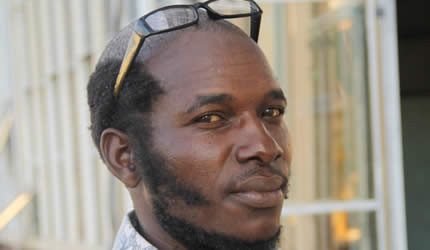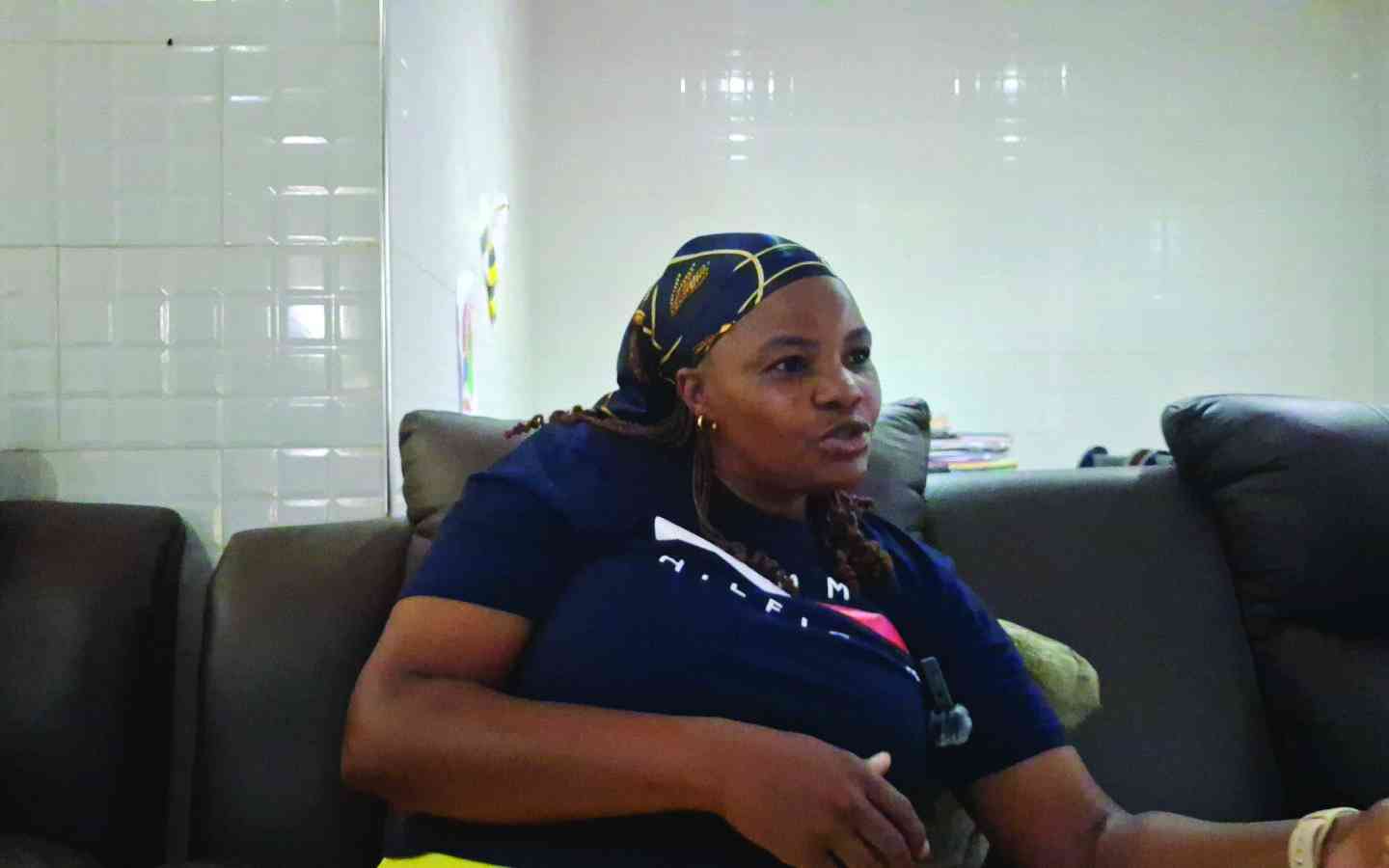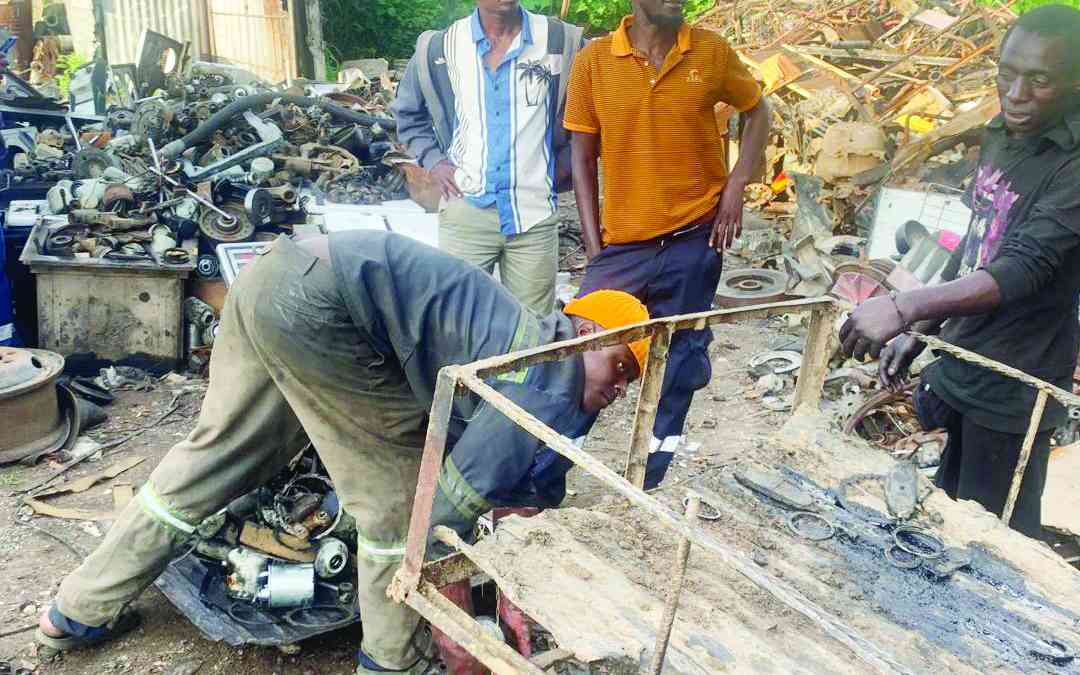
United Kingdom-based stylist Craig Chimtengo (CC) says those who want to succeed in their chosen fields must just put in the work and people will notice instead of chasing awards as well as nominations.
Chimtengo, who is the founder and creative director of Mr Roca, offered the advice on the platform In Conversation with Trevor, which is hosted by Alpha Media Holdings chairman Trevor Ncube (TN).
Below are excerpts from the conversation.
TN: Twist Chimtengo. Welcome to In Conversation With Trevor.
CC: Thank you. Thank you for having me. I feel special today, because this seat, a lot of great people have sat on it, so I feel so honoured.
TN: You are special, and to be honest this is an opportunity for us to honour you.
- You are doing amazing work, you are doing different kinds of work, and I thought there is going to be some young person out there, or even an adult who is going to connect with certain aspects of your journey.
- So I am really looking forward to you sharing that story. But can we go to the name Twist. Where does Twist come from?
CC: Over the years I had to take that name off because it had negative connotations to it.
- In Conversation with Trevor: Chisamba: Let’s be proud of ourselves
- In Conversation with Trevor: ‘I tried to change Zanu PF from within’ – Margaret Dongo
- In Conversation with Trevor : How car crash changed my life
- In Conversation With Trevor: ‘We lost our humanity’
Keep Reading
When I was growing up in primary school, I was so skinny, and my teacher read the story of Oliver Twist, and then he said he was like this guy.
Like how skinny I was, and [Oliver Twist who was] hungry and asking for more.
So over the years people started calling me Twist all the way to like, my adult life.
And then when I was building my brand I realised like no, I do not want to be associated with that because...
TN: Oliver Twist.
CC: Oliver Twist yeah. It is not me anymore.
TN: Yeah.
CC: So I had to take it off.
TN: But I found it somewhere. I do not know where I found it.
CC: Because some people still call me that, and I had to keep reminding them like no.
TN: I am not Twist anymore.
CC: No I am not.
TN: Craig, you are the founder and creative director of Mr Rocca based in London, Premium Bespoke Tailoring House that services a clientele in London, in Zimbabwe, in South Africa. What do you do? What does your work involve?
CC: In a nutshell, I solve rich people's problems.
TN: Aha.
CC: Yeah. I make Bespoke tailoring. The thing is most people have a problem when it comes to dressing, so I am just addressing that.
The reason why I started this is because when people are wearing clothes usually, they do not fit them, and they feel uncomfortable.
So, the essence of Bespoke tailoring is I have to come in and hear the challenges that you are facing by just dressing, and then I take your measurements and then we discuss the journey like where you are right now and where you need to be.
Because at the end of the day when Adam ate the apple it became illegal to be naked, so clothes are part of us on a daily basis, so why not wear them and feel comfortable wearing them.
So I make suits and I make shirts and I concentrate on that niche.
TN: Do people come to you, or you look at Trevor and say oh he does not dress very well?
I think I can improve his image. Talk to me about that? How does that relationship work?
CC: People come to me.
TN: Okay.
CC: I sell to people that have a need. I believe in problem solving.
TN: Right.
CC: So I need to be solving a problem. So if you do not see that you have a problem, I do not need to be coming to you.
TN: Okay.
CC: You have to realise that you have a problem, and you need help, then I am here to help you.
TN: But can you not say, I am thinking, you know you are looking at some leading personality, some CEO, and you are looking at the way they are dressing and like I mean he could look better.
CC: Yes.
TN: And represent himself better. Let me find a way of reaching out to them. Is that another way of reaching out? No?
CC: So three things [are] involved right.
About 2.5% of the population in the world are innovators. And about 13% are like the early adopters.
And then we have got the luggers and everyone else. So I usually target the innovators and the early adopters. Those become my salespeople.
TN: Right.
CC: So there are people like you yourself. You believed in me earlier on in my journey. So if I dress you well, then you become a salesperson and then everyone else starts coming up from you.
TN: That is interesting.
CC: So I only concentrate on the innovators and [the] adopters.
TN: Just go back and and tell us, when did you get the sense that fashion is what I want to do?
- When was the earliest moment you got that sense that this is what I want to do in life?
CC: There is a story behind it. When I was born, we were born in Glen Norah.
My father was a hotel manager [at] Sheraton back in the day. And then a few years later, a few years after I was born, he decided to move to Malawi. So we had to sell our house and you know relocate to Malawi.
When we got there things did not work out the way he had planned it.
So, he was jobless, and then my mother started doing second-hand clothing. This was like in the early 1990s. So zvema bhero like now.
TN: Yeah.
CC: So, every time she would go to get these mabhero and bring them in, I was exposed to all that because when she was selecting, I could be the first person to pick the best outfits and then keep before she goes to the market.
So over the years I became so exposed to it.
So, the journey is based on three aspects: purpose, passion and profit. So now my grandfather was a tailor.
So I am a first-generation immigrant into this country.
When he came in the 1950s the first job that he did was a coat maker, so he was a tailor. So part of it is innate.
TN: Wow.
CC: Which is the purpose. And then the passion now was brought by my mother, because even though we were struggling, like what Steve Jobs said, “you can only connect the dots looking backwards”.
TN: Yeah.
CC: Like the situation that we went through to the point that she had to survive and start selling secondhand clothing, she was exposing me to clothes.
From an early age like six [or] seven [years old] I was bringing together outfits.
And then, you know over the years I went to the UK, I could not get a job, I did not have papers, so the only thing that I could do was to become self-employed and started styling.
So, I had to sell to people like you know what I’m a stylist, I can help you style and help you do personal shopping.
Because when I used to go to church people would be like you look great, like where did you buy your clothes?
And would I say yeah, I can help you do the shopping for you. So that is the journey.
TN: It is a fascinating story, Craig. And leaving to go to London? What were you going to do in London initially?
CC: So I used to work at Meikles Hotel at the reception and I felt, because I was exposed to this luxury and this wealth [with] all the people coming in.
I felt like there is something more, there is something better out there, there is something, I could not pick what it was.
And my cousin just said you might as well come to the UK, and you know just change the environment and see what you can do.
Well years before then, Coventry University came to Harare. You know like how they look for students?
TN: Yeah.
CC: And I got a half scholarship at the time with Coventry University, but I could get the money for the rest of the scholarship.
Like they would pay half, then you need to pay half. So that opportunity went, but it lingered in me.
Then my cousin brought me to the UK now. Again after a few [months] I did not have my visa because I was [on a] visitor [visa] you know.
So she said just hustle, just do what you can.
But I think it was an opportunity, the biggest gift of my...oh the biggest blessing of my adult life was not having papers, because if I had I would have just done a regular job, but because I did not I had to survive and then I started digging into myself, like self purging, like what am I good at.
I went through a journey of [having] had dreadlocks, I was vegan, I was reading a lot, I was off social media trying to find myself, like who am I as a person.
Until I got to the core of this is me, this is what I do effortlessly so why not get paid for it?
TN: You went to the London College of Fashion?
CC: That is correct, yeah.
TN: Talk to me about that journey?
CC: I went there because I know that people always ask: like are you experienced, like are you educated in this, you know.
So, I went there just for validation, but I already knew the gift that was in me so going to London College of Fashion was just to polish me, to prepare me into the space of my target market. But really what I learnt is just the polishing, but the gift was already in me. Yeah.
TN: And how how long is the course, the fashion course?
CC: It is about a year. So, it is broken down into styling, and personal shopping, and all sorts.
TN: So how long have you been doing this t job now?
CC: To be able to be paid for it [has] been about five years.
TN: Okay.
CC: But this has been my life like from the jump.
TN: This is something you love?
CC: Yeah. Like I have been trying to deviate from it, but it keeps calling me, it is not me, it is innate. Yeah.
TN: What do you enjoy about what you do?
CC: Adding value to people’s lives.
That is all. It is not really about the money, but I like adding value.
Like when you look good you feel good.
When you feel good you act better.
When you act better, people pay you better.
So even when you are negotiating your business, when you are looking good you are most likely to get that deal because you feel great, you look great, you are more confident and that is just what I do.
I just add value into your life.
I’ll be just helping you, like the psychology of outfits, the psychology of colour.
Like why you should wear a red tie instead of a blue tie, and why you should carry yourself in this way and why suits are so important in your journey and in your life.
Regardless of what stage you are in, everyone has ambitions, but clothing makes the man. Nothing transforms a man quicker than a garment.
TN: Wow. You have been featured in GQ, and you have made it to Forbes Under 40? That is big recognition. Talk to me about that?
CC: Yeah. It is really a milestone. I always say just put in the work. Do not chase awards, do not chase nominations. Just put in the work and then the work...
TN: Somebody’s going to notice what you are doing.
CC: Somebody’s going to notice. Anything that you do, whatever you do, there are people watching you and there is a market for it.
So just concentrate on the product, just put in the work and everything just falls into place. I mean here I am now, yeah.
- “In Conversation With Trevor” is a weekly show broadcast on YouTube.com//InConversationWithTrevor. The conversations are broadcast to you by Heart and Soul Broadcasting Services. The conversations are sponsored by WestProp Holdings.










